
The Enchanting Al Thakira Mangroves of Qatar
Nestled along the northeastern coast of Qatar, the Al Thakira Mangroves form a lush, green sanctuary that starkly contrasts the surrounding desert landscape. This natural haven is one of Qatar's hidden gems, offering a tranquil escape for nature lovers and adventure seekers alike. Al Thakira Mangroves are home to a rich diversity of flora and fauna. The mangrove trees, with their intricate root systems, provide a vital habitat for many bird species, including flamingos and herons. As you explore the winding waterways, either by kayak or on foot, you might also spot fish darting through the clear waters and crabs scuttling along the muddy banks. The best time to visit the mangroves is during the cooler months, from November to April. This period offers comfortable temperatures and the opportunity to witness migratory birds. The area is also perfect for a relaxing picnic or a peaceful paddle through the serene waters. Whether you are a birdwatcher, a photographer, or simply looking for a unique outdoor experience, Al Thakira Mangroves will not disappoint.
Local tips in Al Thakira Mangroves
- Visit during the cooler months from November to April for the best experience.
- Consider kayaking to explore the winding waterways and get closer to the wildlife.
- Bring binoculars for birdwatching, as the area is home to many species, including migratory birds.
- Wear comfortable shoes and be prepared for muddy pathways if you plan to walk around.
- Pack a picnic and enjoy a meal surrounded by the natural beauty of the mangroves.
The Enchanting Al Thakira Mangroves of Qatar
Nestled along the northeastern coast of Qatar, the Al Thakira Mangroves form a lush, green sanctuary that starkly contrasts the surrounding desert landscape. This natural haven is one of Qatar's hidden gems, offering a tranquil escape for nature lovers and adventure seekers alike. Al Thakira Mangroves are home to a rich diversity of flora and fauna. The mangrove trees, with their intricate root systems, provide a vital habitat for many bird species, including flamingos and herons. As you explore the winding waterways, either by kayak or on foot, you might also spot fish darting through the clear waters and crabs scuttling along the muddy banks. The best time to visit the mangroves is during the cooler months, from November to April. This period offers comfortable temperatures and the opportunity to witness migratory birds. The area is also perfect for a relaxing picnic or a peaceful paddle through the serene waters. Whether you are a birdwatcher, a photographer, or simply looking for a unique outdoor experience, Al Thakira Mangroves will not disappoint.
When is the best time to go to Al Thakira Mangroves?
Iconic landmarks you can’t miss
Al Khor Family Park & Zoo
Explore the wonders of Al Khor Family Park & Zoo, where nature and wildlife come together for an unforgettable family adventure in Qatar.
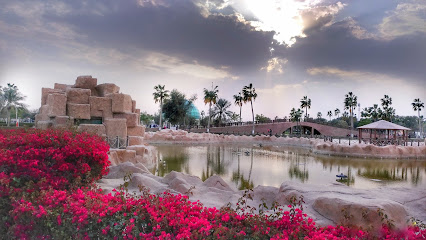
Baladna Park
Discover the beauty of nature and local culture at Baladna Park, a premier destination in Doha for relaxation and family fun.
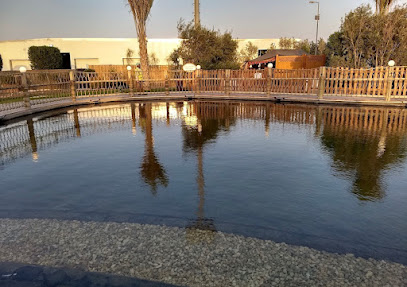
Al Zubara Fort
Explore the historic Al Zubara Fort, a UNESCO World Heritage site in Qatar that showcases the region's rich heritage and stunning architecture.
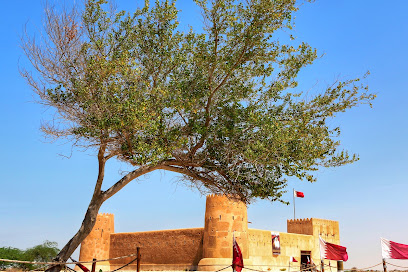
Al Khor Corniche
Discover tranquility and stunning coastal views at Al Khor Corniche, the perfect beach pavilion for relaxation and local culture in Qatar.
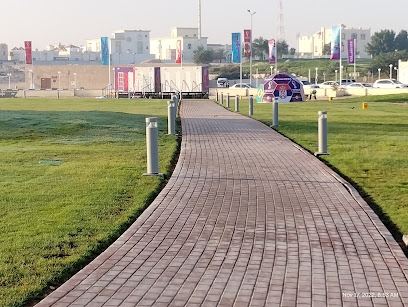
Al Ferkiah Beach
Discover the tranquil beauty of Al Ferkiah Beach, a public paradise in Qatar perfect for relaxation and water adventures.
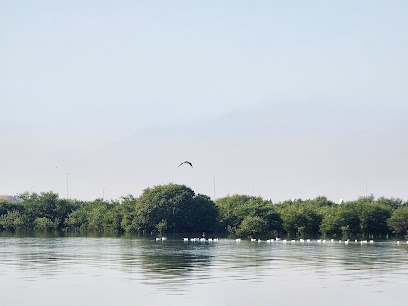
Al Thakeera Beach
Discover the tranquil beauty of Al Thakeera Beach, a perfect seaside destination in Qatar with stunning views and natural ecosystems.
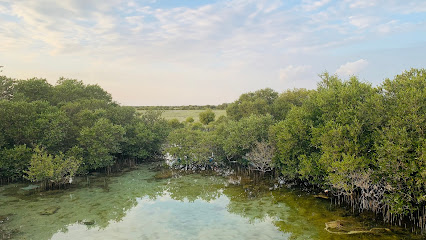
Umm Bab Beach
Discover the tranquil beauty of Umm Bab Beach, where palm trees meet golden sands and the Arabian Gulf invites you to relax and enjoy nature.
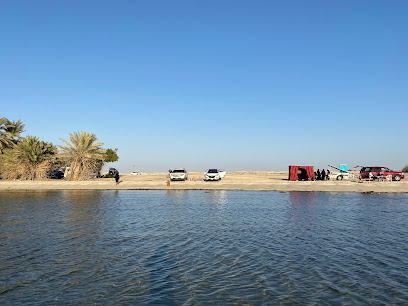
Purple Island Parking
Explore the serene beauty of Purple Island, a natural sanctuary in Qatar renowned for its mangrove forests and diverse wildlife, perfect for nature lovers.
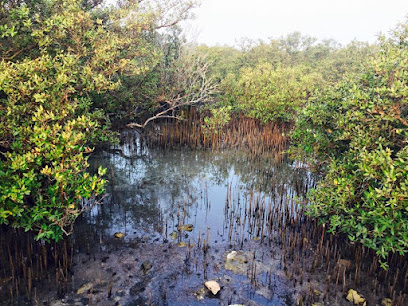
Purple Island
Explore the stunning natural beauty of Purple Island, Qatar's serene paradise with lush mangroves and breathtaking views perfect for nature lovers.
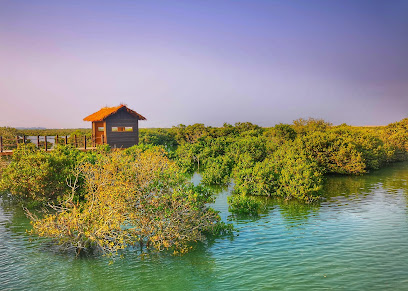
Purple Island Beach
Experience the breathtaking beauty of Purple Island Beach, a tranquil escape near Al Khor with stunning views and exciting water activities.
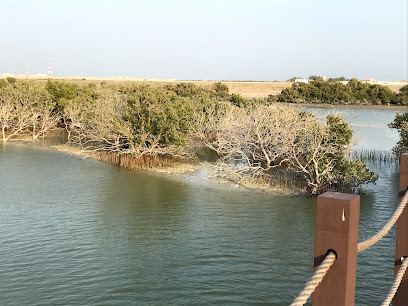
Corniche Al Khor Park
Explore the natural beauty and tranquility of Corniche Al Khor Park, a perfect urban escape in Al Khor, Qatar with stunning views and lush landscapes.
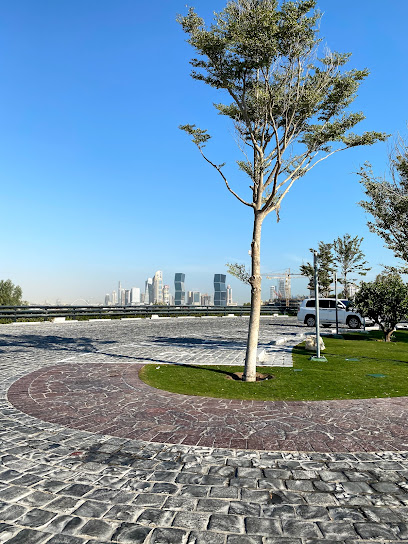
Al Shuaa Reserve
Explore the natural beauty of Al Shuaa Reserve in Al Khor, a perfect destination for relaxation and outdoor adventures amidst lush greenery.
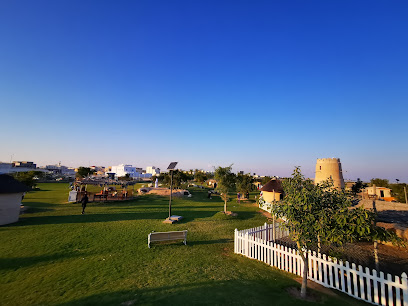
Al Thakira Mangroves Forest Beach
Explore the serene beauty of Al Thakira Mangroves Forest Beach, a perfect blend of nature and adventure in Qatar's coastal paradise.
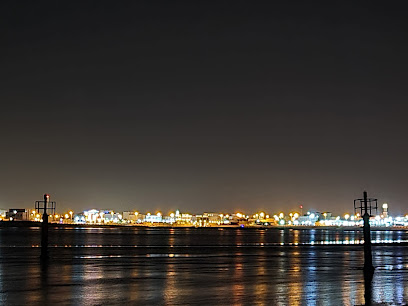
Al Thakhira Marina
Explore Al Thakhira Marina: A beautiful escape in Qatar, where tranquil waters meet lush mangroves, perfect for relaxation and adventure.
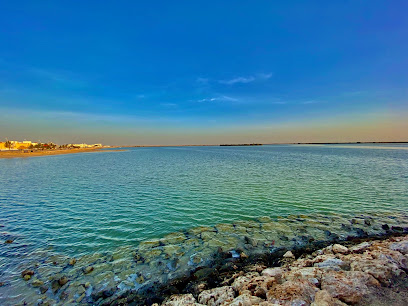
Al Khor Hill Park
Experience the tranquility and scenic beauty of Al Khor Hill Park, a perfect destination for relaxation and family fun in Qatar.
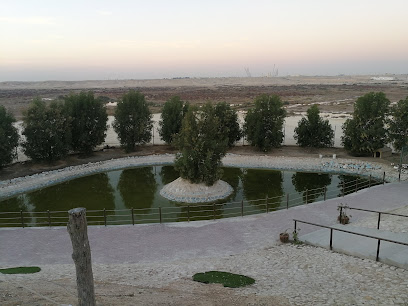
Unmissable attractions to see
Al Bidda Park
Experience the beauty and tranquility of Al Bidda Park, a green oasis in the heart of Doha, perfect for relaxation and recreation.
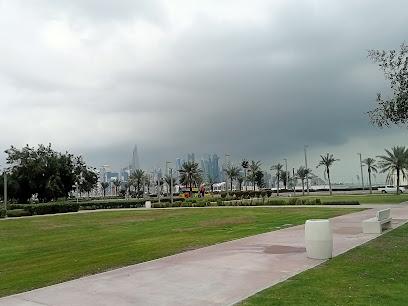
Old Doha Port
Experience the vibrant history and stunning views at Old Doha Port, a must-visit marina that embodies the spirit of Qatar.
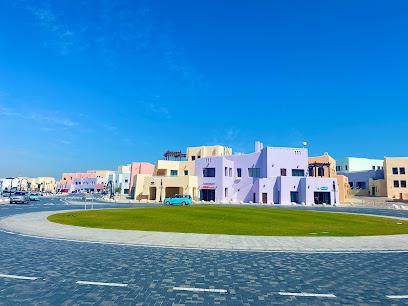
Katara Beach
Experience the serene beauty and cultural richness of Katara Beach in Doha, a perfect blend of relaxation and adventure by the sea.

Baladna Park
Experience the beauty and adventure of Baladna Park, a serene oasis in Doha, perfect for families and nature lovers seeking a memorable outing.
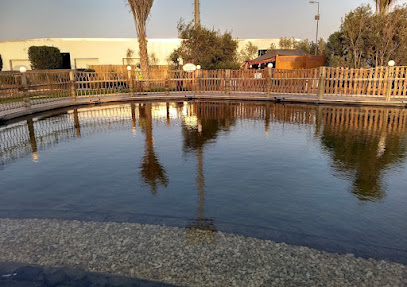
Desert Falls Water & Adventure Park
Dive into excitement at Desert Falls Water & Adventure Park, where thrilling rides and family-friendly attractions await in Qatar's ultimate water adventure.
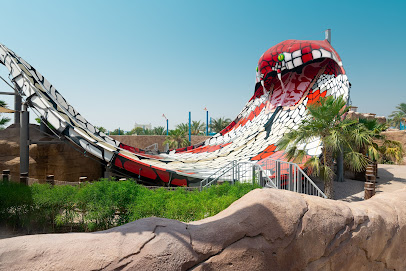
Al Zubara Fort
Discover the rich heritage of Qatar at Al Zubara Fort, a UNESCO World Heritage site showcasing traditional military architecture and local history.
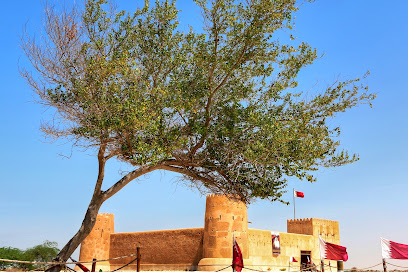
Al Ferkiah Beach
Discover the tranquility and beauty of Al Ferkiah Beach, a perfect spot for relaxation and adventure on Qatar’s stunning coastline.
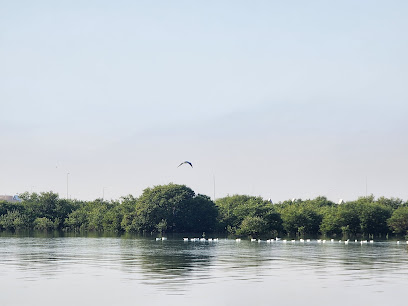
Panda House
Explore the enchanting Panda House in Al Khor, a family-friendly zoo and park showcasing diverse wildlife and beautiful landscapes.
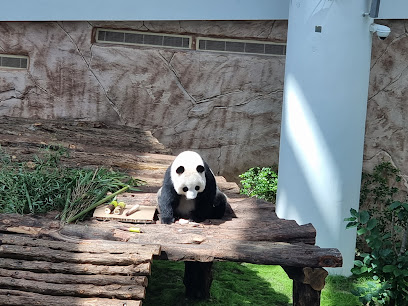
Umm Bab Beach
Discover the serene beauty of Umm Bab Beach in Qatar, offering stunning views, soft sands, and a perfect escape for beach lovers and nature enthusiasts alike.
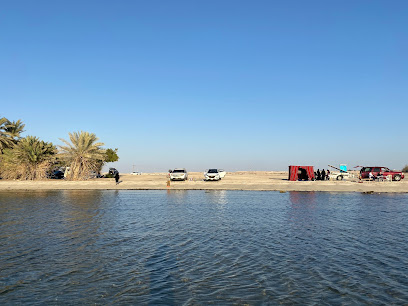
Al Shuaa Reserve
Explore Al Shuaa Reserve, a peaceful park in Al Khor, offering lush greenery, family-friendly activities, and stunning natural beauty.
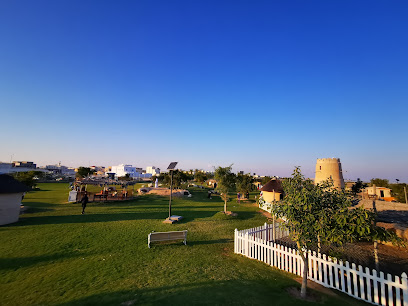
Al Thakira Mangroves Forest Beach
Explore the enchanting Al Thakira Mangroves Forest Beach, where serene landscapes meet thrilling outdoor adventures in Qatar.
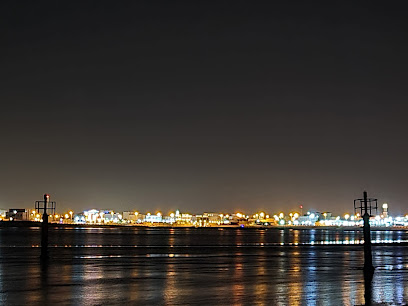
Al Thakhira Marina
Discover the tranquil beauty of Al Thakhira Marina, where azure waters meet lush mangroves in a perfect blend of nature and leisure.
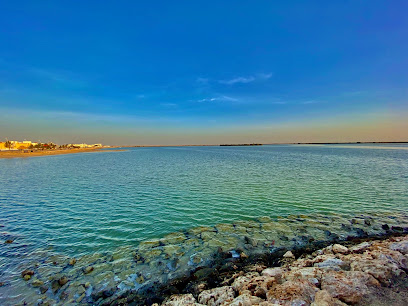
Al Qarma Beach Garden (Ladies Only)
Discover tranquility at Al Qarma Beach Garden, a serene ladies-only park in Al Khor, perfect for relaxation and enjoying nature.
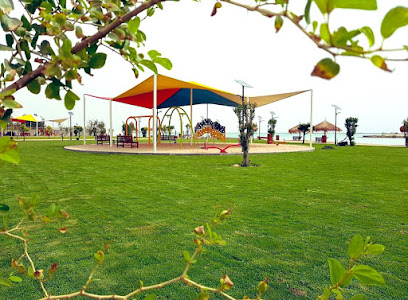
New Al Wakra Public Beach
Explore the beauty and tranquility of New Al Wakra Public Beach, an idyllic family-friendly destination on the Arabian Gulf.
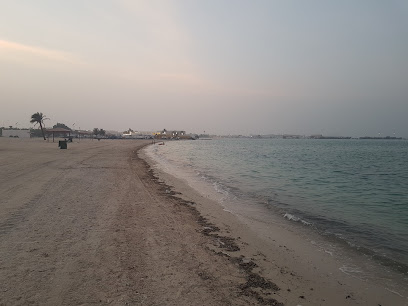
Al-Dakhira Fishing Spot
Discover the serene beauty of Al-Dakhira Fishing Spot, a tranquil beach pavilion perfect for fishing and relaxation amidst stunning mangrove scenery.
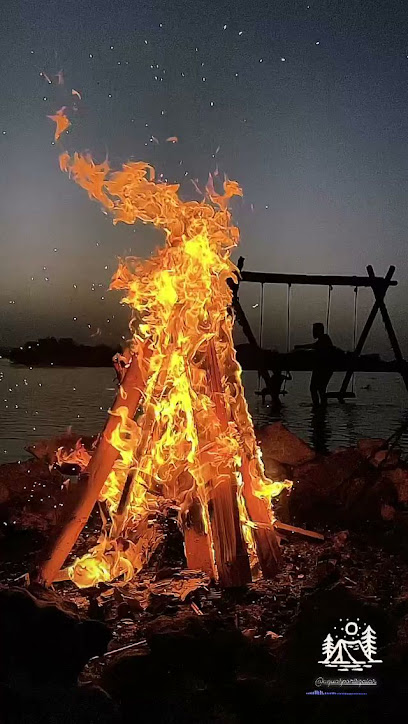
Essential places to dine
Bayt El Talleh Restaurant
Experience authentic Middle Eastern flavors at Bayt El Talleh Restaurant in Doha's vibrant Katara Cultural Village.
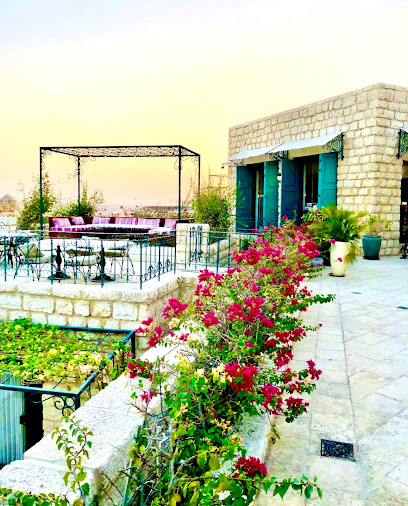
Mamig Armenian & Lebanese Restaurant
Discover the authentic flavors of Armenia and Lebanon at Mamig Restaurant in Doha's cultural hub.
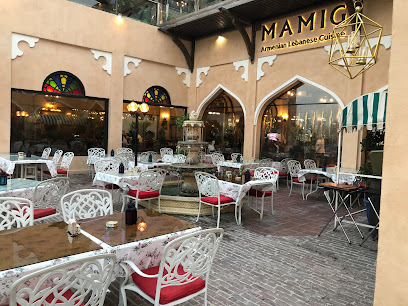
Santa Monica Breakfast Club
Discover culinary excellence at Santa Monica Breakfast Club in Doha's Grand Hyatt - where American breakfast meets luxury dining.
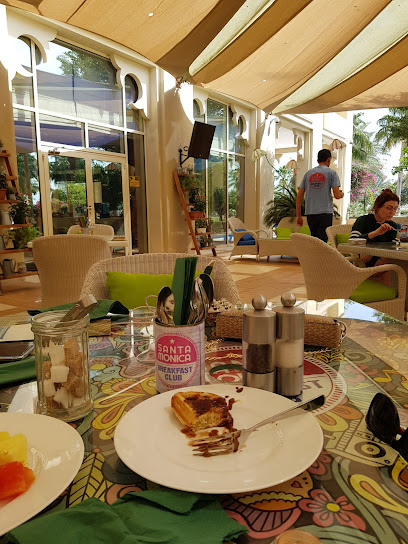
Saffron Lounge - Katara زعفران لاونج- كتارا
Experience authentic Indian cuisine at Saffron Lounge in Katara Cultural Village, where flavor meets elegance in a stunning setting.
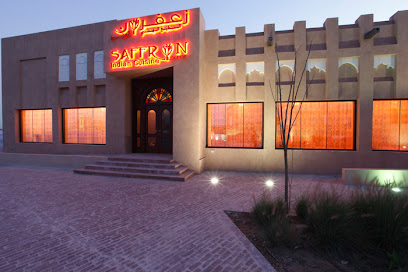
Shanghai Garden @ City Center Doha Mall
Discover authentic Asian flavors at Shanghai Garden - your gateway to delightful Chinese cuisine and exquisite sushi in Doha.
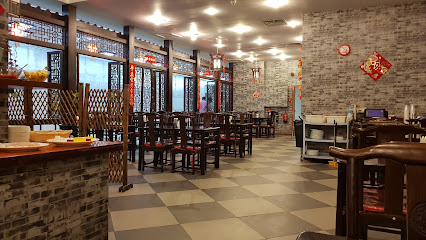
Morimoto Doha
Discover exquisite Japanese cuisine at Morimoto Doha - where tradition meets innovation in every dish.

Isaan Thai Restaurant
Experience authentic Thai flavors in Doha at Isaan Thai Restaurant - where tradition meets taste.
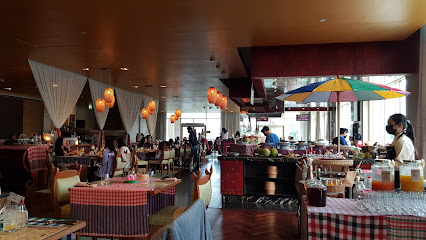
Shawkah Afandi
Discover authentic Middle Eastern cuisine at Shawkah Afandi – where every bite tells a story of flavor and tradition.
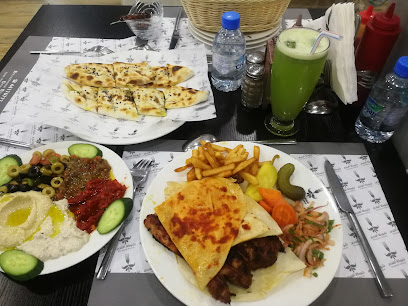
Tamil Nadu Restaurant
Discover authentic South Indian flavors at Tamil Nadu Restaurant in Al Khor – where tradition meets taste in every dish.
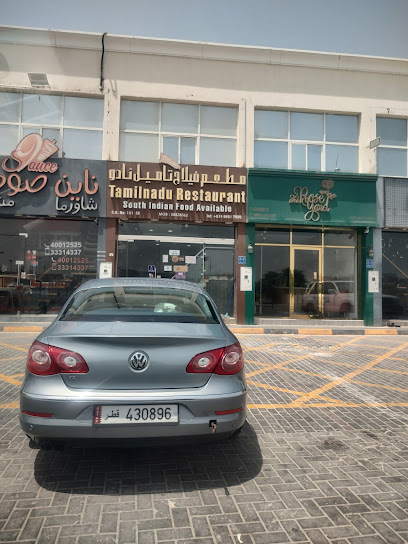
Al Nahham Restaurant
Experience exquisite Qatari cuisine at Al Nahham Restaurant on Banana Island – a perfect blend of stunning views and culinary artistry.
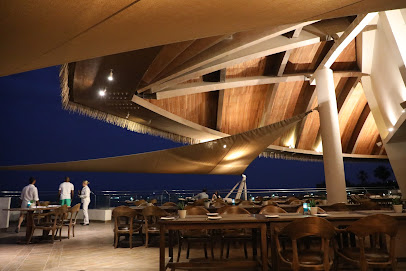
Gymkhana Qatar
Experience the essence of Indian cuisine at Gymkhana Qatar - where tradition meets modern culinary excellence in Doha's scenic Katara Hills.
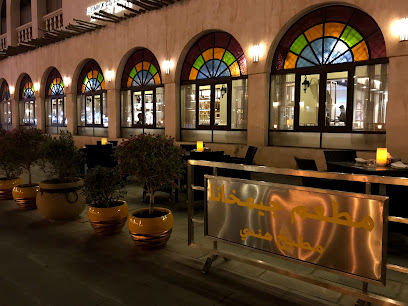
Bebabel Qatar
Experience the flavors of Middle Eastern cuisine at Bebabel Qatar in The St Regis Doha – where tradition meets elegance.
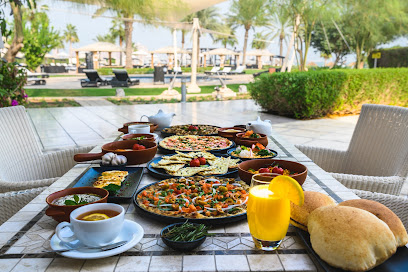
Al Terrace Doha
Discover authentic Georgian cuisine at Al Terrace Doha, where every dish tells a story and hospitality meets flavor in a cozy setting.
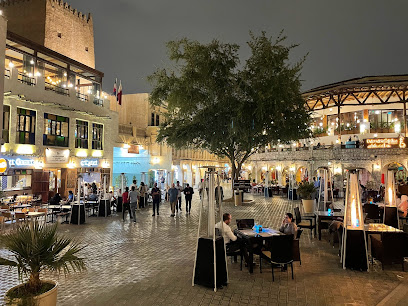
Q Lounge & Restaurant
Experience luxury dining at Q Lounge & Restaurant on Banana Island with exquisite cuisine and stunning views.
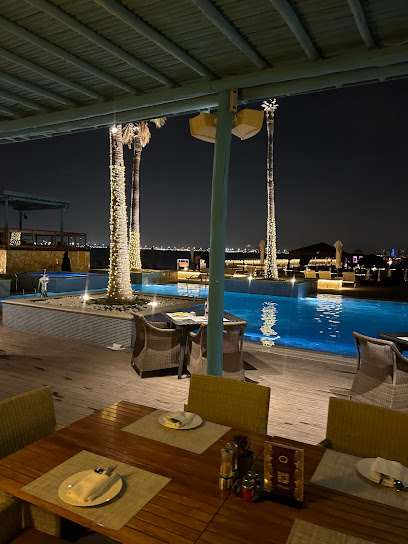
Azraq Restaurant
Discover exquisite dining at Azraq Restaurant on Banana Island – where culinary excellence meets breathtaking views.
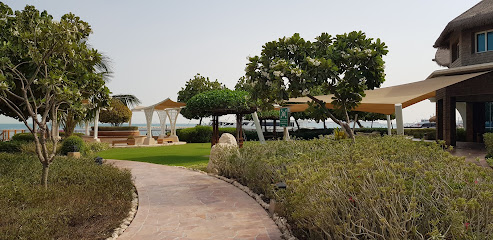
Markets, malls and hidden boutiques
Place Vendôme Mall Gate 1
Experience luxury shopping and dining at Place Vendôme Mall in Lusail – a must-visit destination for every traveler in Qatar.
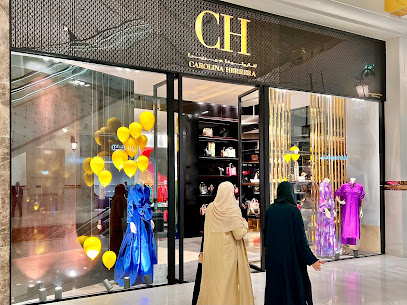
Al Wakrah Old Souq
Discover the vibrant culture and rich history at Al Wakrah Old Souq, a traditional market in Qatar offering unique crafts, delectable local cuisine, and unforgettable experiences.
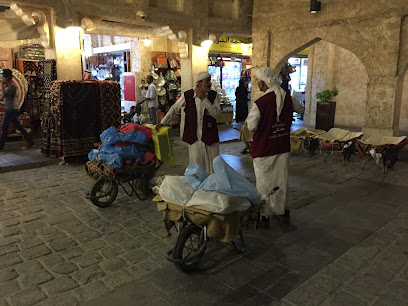
Al Ferkiah Beach
Discover the tranquil beauty of Al Ferkiah Beach, a serene public oasis in Qatar perfect for relaxation and seaside adventures.
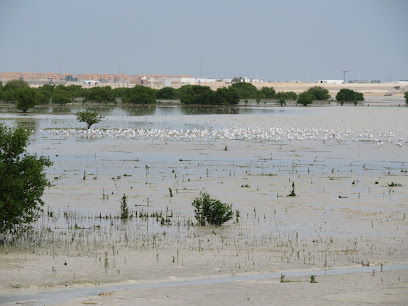
Al Thakeera Beach
Experience the tranquility of Al Thakeera Beach, a hidden gem in Qatar, where stunning views and serene surroundings await.
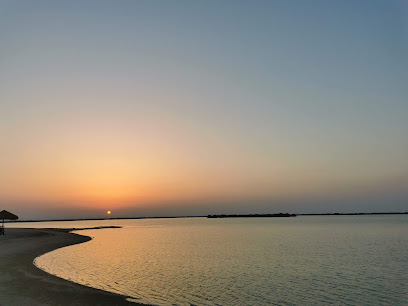
Desert Safari Camel Ride
Explore the enchanting Qatari desert with a memorable camel ride, blending adventure and cultural insights for an unforgettable experience.
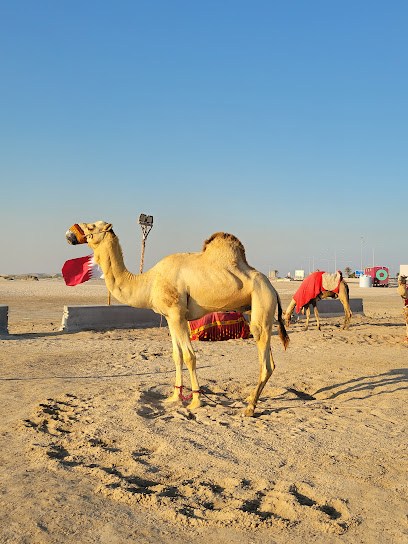
Purple Island Parking
Explore the serene beauty of Purple Island Parking in Al Khor, Qatar – a serene gateway to nature and tranquility.
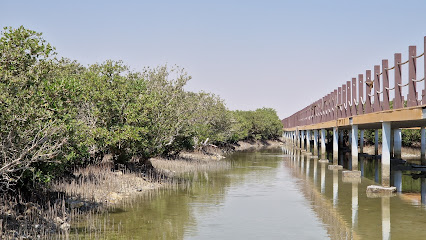
Purple Island Beach
Experience the serene beauty of Purple Island Beach, a stunning coastal retreat in Al Khor, Qatar, perfect for relaxation and water activities.
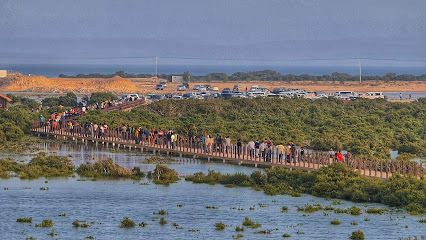
Corniche Al Khor Park
Explore the lush landscapes and tranquil ambiance of Corniche Al Khor Park, a serene escape perfect for relaxation and recreation in Al Khor.
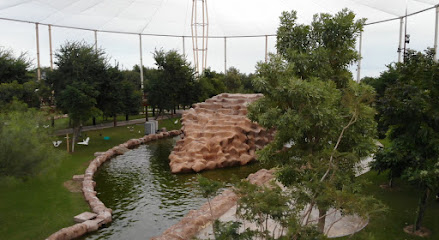
Al Thakira Mangroves Forest Beach
Discover the tranquility of Al Thakira Mangroves Forest Beach, where nature meets adventure in a serene coastal paradise.
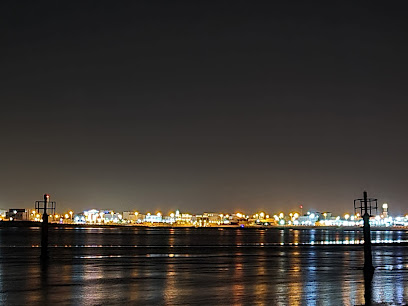
Al Thakhira Marina
Discover the beauty of Al Thakhira Marina, a scenic haven for adventure, tranquility, and rich marine life in Qatar.
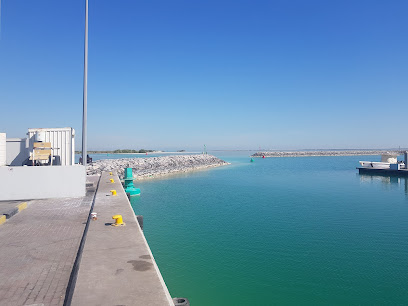
Al Thakhira Beach Park
Experience the natural beauty and tranquility of Al Thakhira Beach Park, a perfect retreat for relaxation, outdoor activities, and wildlife exploration.
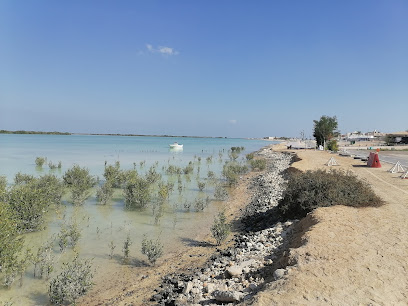
Purple Island, Mangroves
Explore the serene landscapes of Purple Island, Mangroves, a natural haven of biodiversity and tranquility in Al Khor, Qatar.
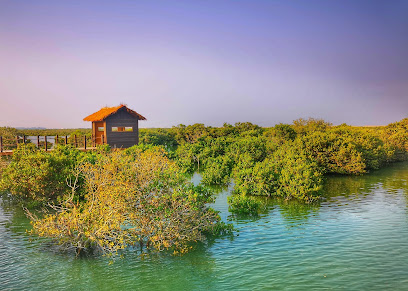
Al Dhakira Souq
Discover the heart of local culture at Al Dhakira Souq, a vibrant market filled with fresh produce, crafts, and authentic Qatari experiences.
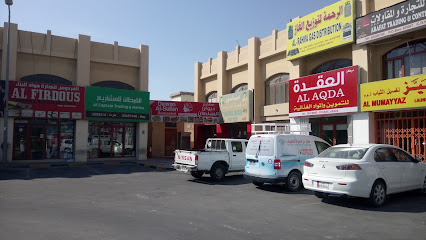
AquaSports Qatar Eco Camp - Mangrove Kayaking Center | Learning Facility مخيم جولات الكياك أكواسبورتس
Discover the beauty of Qatar's mangroves with AquaSports Qatar Eco Camp - a perfect blend of adventure and nature.
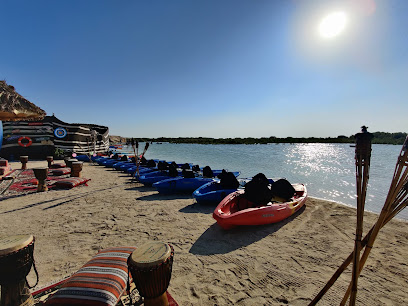
Debenhams
Discover unparalleled shopping experiences at Debenhams in Doha Festival City, where style meets convenience in a vibrant retail environment.

Essential bars & hidden hideouts
Banana Island Resort Doha by Anantara
Discover luxury and tranquility at Banana Island Resort Doha by Anantara, a private paradise in the heart of Qatar's vibrant capital.

Al Maha Island
Explore Al Maha Island in Lusail: A splendid tourist attraction with stunning views, diverse dining, and vibrant culture awaits you.
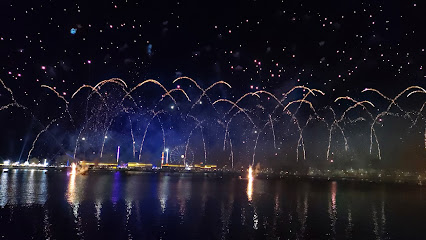
KROSSROADS CLUB
Discover the vibrant nightlife at Krossroads Club in Doha, a bar with stunning views, an extensive drink menu, and a lively atmosphere perfect for socializing.

Nobu Doha
Savor the fusion of traditional Japanese cuisine and contemporary flair at Nobu Doha, an upscale dining destination in Qatar.
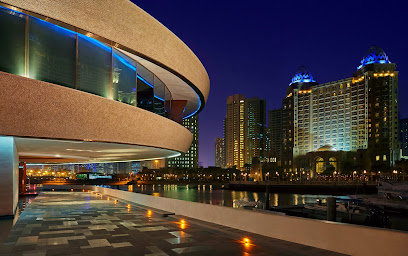
Al Maha Lounge
Experience luxury and comfort at Al Maha Lounge, Doha's premier travel oasis offering relaxation and amenities for every traveler.
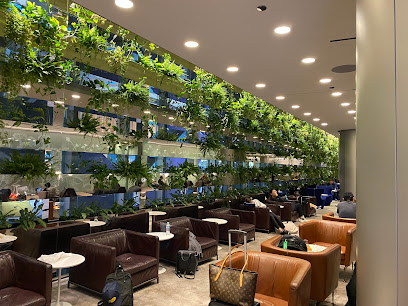
Al Thakeera Beach
Discover the serene beauty of Al Thakeera Beach, a perfect getaway for relaxation and nature exploration in Qatar.
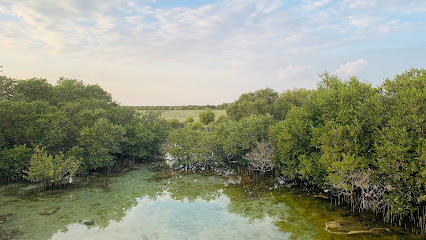
Monkey Tale
Discover Doha's energetic nightlife at Monkey Tale, where dining, dancing, and delightful drinks come together in a vibrant atmosphere.
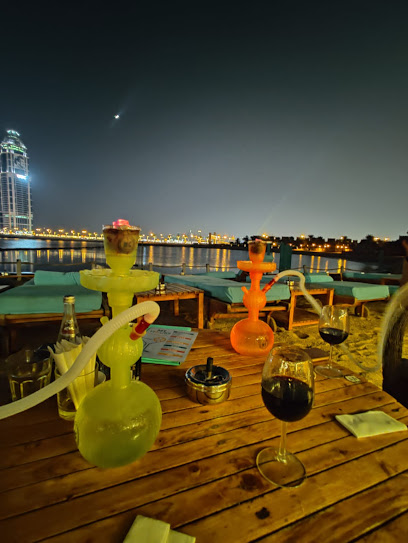
Sky View, La Cigale hotel
Discover the elegance of Sky View at La Cigale Hotel, Doha's premier rooftop lounge offering stunning city views and exquisite dining.
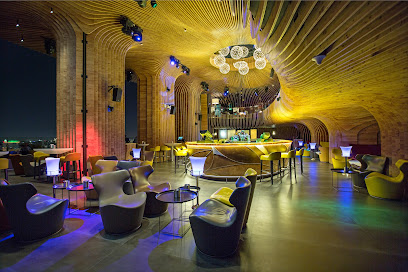
Tropicana 360
Experience the vibrant nightlife at Tropicana 360, Doha's premier bar offering exquisite drinks and a stylish atmosphere for an unforgettable evening.

Al Nahham Restaurant
Experience the flavors of Qatar at Al Nahham Restaurant on Banana Island, where stunning views meet exceptional dining.
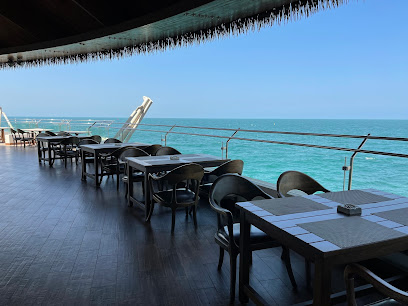
La Vista 55
Discover the vibrant atmosphere and exquisite cuisine at La Vista 55, Doha's premier bar and restaurant with stunning skyline views.

Al Thakira Mangroves Forest Beach
Al Thakira Mangroves Forest Beach: A serene coastal escape blending beautiful beaches with lush mangrove ecosystems in Qatar.
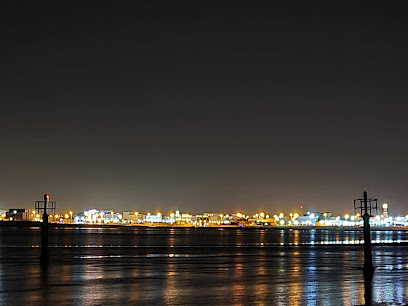
Manko Doha
Discover Manko Doha, where exquisite cuisine meets vibrant nightlife in an unforgettable dining experience.
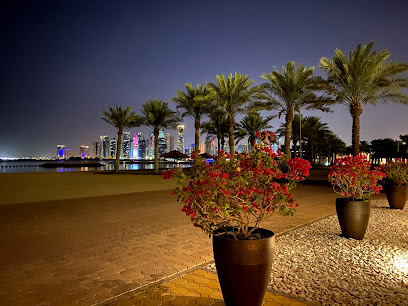
Al Thakhira Beach Park
Experience the natural beauty of Al Thakhira Beach Park, a perfect destination for relaxation, family fun, and outdoor adventures in Qatar.
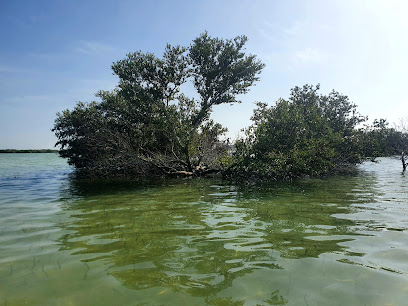
Al Terrace Doha
Experience the authentic tastes of Georgia at Al Terrace Doha, a must-visit restaurant for culinary explorers in Qatar.
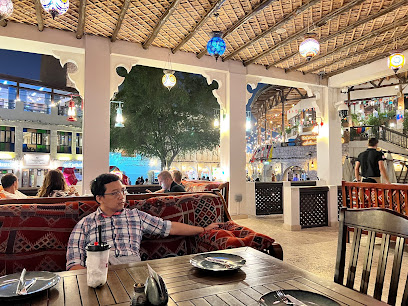
Local Phrases about Al Thakira Mangroves
-
- Helloمرحبا
[marhaban] - Goodbyeوداعا
[wadaeana] - Yesنعم
[naam] - Noلا
[laa] - Please/You're welcomeمن فضلك
[min fadlik] - Thank youشكرا لك
[shukran lak] - Excuse me/Sorryعذرا
[aathirana] - How are you?كيف حالك؟
[kayfa haluk?] - Fine. And you?بخير. وأنت؟
[bikhayr. wa ant?] - Do you speak English?هل تتحدث الإنجليزية؟
[hal tatahadath al'inglizia?] - I don't understandلا أفهم
[laa afham]
- Helloمرحبا
-
- I'd like to see the menu, pleaseأريد أن أرى القائمة، من فضلك
[uridu an ara alqayimat, min fadlik] - I don't eat meatأنا لا آكل اللحم
[ana la aakulu allahm] - Cheers!في صحتك!
[fi sahtik] - I would like to pay, pleaseأود أن أدفع، من فضلك
[awadu an adfa, min fadlik]
- I'd like to see the menu, pleaseأريد أن أرى القائمة، من فضلك
-
- Help!النجدة!
[alnajda!] - Go away!انصرف!
[ansarif!] - Call the Police!اتصل بالشرطة!
[iatisil bilshurta!] - Call a doctor!اتصل بالطبيب!
[iatisil biltabib!] - I'm lostضللت الطريق
[dalalt altariq] - I'm illأنا مريض
[ana mareed]
- Help!النجدة!
-
- I'd like to buy...أريد شراء...
[uridu shira...] - I'm just lookingأنا فقط أتفرج
[ana faqat atafarraj] - How much is it?كم سعره؟
[kam siroh?] - That's too expensiveهذا غالي جدا
[hatha ghali jiddan] - Can you lower the price?هل يمكنك خفض السعر؟
[hal yumkinuka khafd alsir?]
- I'd like to buy...أريد شراء...
-
- What time is it?كم الساعة؟
[kam alsaa'a?] - It's one o'clockالساعة الواحدة
[alsaa'at alwaahida] - Half past (10)النصف بعد
[alnusf baad] - Morningالصباح
[alsabah] - Afternoonالظهر
[alduhr] - Eveningالمساء
[almasa] - Yesterdayالبارحة
[albarehah] - Todayاليوم
[alyawm] - Tomorrowغدا
[ghadan] - 1واحد
[wahid] - 2اثنان
[ithnan] - 3ثلاثة
[thalatha] - 4أربعة
[arba'a] - 5خمسة
[khamsa] - 6ستة
[sitta] - 7سبعة
[sab'a] - 8ثمانية
[thamania] - 9تسعة
[tasia] - 10عشرة
[ashara]
- What time is it?كم الساعة؟
-
- Where's a/the...?أين ...؟
[ayn ...?] - What's the address?ما هو العنوان؟
[ma huwa al'anaan?] - Can you show me (on the map)?هل يمكنك أن تريني (على الخريطة)؟
[hal yumkinuka an tureeni (ala alkharitah)?] - When's the next (bus)?متى يأتي الحافلة القادمة؟
[mata yaati alhafila alqadima?] - A ticket (to ....)تذكرة (إلى ...)
[tazkirah (ila ...)]
- Where's a/the...?أين ...؟
History of Al Thakira Mangroves
-
Al Thakira Mangroves have been a crucial part of the marine ecosystem and local culture for centuries. Historically, these mangroves served as a navigational point for ancient sailors and traders who traversed the Arabian Gulf. The dense greenery provided a natural landmark and a safe haven for ships to anchor and rest.
-
During the late 19th and early 20th centuries, Qatar's economy was heavily reliant on pearl diving. The waters surrounding Al Thakira Mangroves were prime locations for pearl divers. The mangroves' unique ecosystem supported a diverse marine life, including the oysters that produced the highly sought-after pearls. This period marked a significant era in the history of the region, contributing to its economic prosperity.
-
The ecological importance of Al Thakira Mangroves has been recognized for its role in supporting biodiversity and protecting the coastline from erosion. In recent decades, concerted conservation efforts have been initiated to preserve this unique habitat. The Qatari government, along with environmental organizations, has implemented measures to protect the mangroves from pollution and over-exploitation, ensuring their survival for future generations.
-
The local communities around Al Thakira Mangroves have a deep connection with the area, often engaging in traditional practices such as fishing, bird watching, and gathering medicinal plants. These practices have been passed down through generations and remain an integral part of the local culture. The mangroves are not only a natural treasure but also a cultural one, reflecting the harmonious relationship between the people and their environment.
-
In recent years, Al Thakira Mangroves have become a popular destination for eco-tourism. Visitors can explore the mangroves through kayaking, paddleboarding, and guided tours. This shift towards sustainable tourism helps raise awareness about the importance of preserving natural habitats, while also providing an economic boost to the local community. The mangroves offer a unique blend of natural beauty and cultural heritage, attracting tourists from around the world.
Al Thakira Mangroves Essentials
-
Al Thakira Mangroves are located in the northeastern part of Qatar, near the town of Al Khor. The nearest major airport is Hamad International Airport in Doha, approximately 50 kilometers away. From Doha, you can take a taxi or rent a car to reach the mangroves. The drive typically takes around 45 minutes to an hour. Public transportation options are limited, so hiring a car or using taxis is recommended.
-
Once you arrive in Al Thakira, exploring the mangroves is best done by kayak, which can be rented from local tour operators. Kayaking allows you to navigate the narrow waterways and get up close to the mangrove ecosystem. For land transportation, taxis are available, but renting a car provides more flexibility. There are no public buses directly serving the mangroves.
-
The official currency in Qatar is the Qatari Riyal (QAR). Credit cards are widely accepted in hotels, restaurants, and larger retail establishments. However, it is advisable to carry some cash, especially for smaller vendors and local markets. ATMs are available in Al Khor and other nearby towns if you need to withdraw cash.
-
Al Thakira Mangroves and the surrounding areas are generally safe for tourists. Qatar has a low crime rate, but it is always wise to take standard precautions. Avoid leaving valuables unattended and be cautious when exploring unfamiliar areas. There are no specific high-crime areas targeting tourists in this region.
-
In case of an emergency, dial 999 for immediate assistance in Qatar. There are medical facilities in Al Khor, including a hospital and pharmacies. It is advisable to have travel insurance that covers medical emergencies. For minor health issues, over-the-counter medications are available at local pharmacies.
-
Fashion: Do dress modestly, especially when visiting public places. Avoid wearing revealing clothing. Religion: Do respect local customs and traditions. Public Transport: Do use taxis or rent a car for convenience. Don't rely on public transport to reach the mangroves. Greetings: Do greet people with a handshake. A friendly nod or smile is also appreciated. Eating & Drinking: Do try local Qatari cuisine and accept food offerings graciously. Don't consume alcohol in public places, as it is prohibited.
-
To experience Al Thakira Mangroves like a local, consider visiting early in the morning or late afternoon when the weather is cooler and wildlife is more active. Bring sun protection, such as hats and sunscreen, as it can get quite hot. Engage with local tour guides who can provide in-depth knowledge about the mangroves and their ecological significance. Don't miss the chance to photograph the stunning landscapes and diverse bird species.
Trending Landmarks in Al Thakira Mangroves
Nearby Cities to Al Thakira Mangroves
-
Things To Do in Al Daayen
-
Things To Do in Umm Salal
-
Things To Do in Doha
-
Things To Do in Al Rayyan
-
Things To Do in Al Sheehaniya
-
Things To Do in Al Shamal
-
Things To Do in Al Wakrah
-
Things To Do in Mesaieed
-
Things To Do in Sitra
-
Things To Do in Amwaj Islands
-
Things To Do in Juffair
-
Things To Do in Muharraq
-
Things To Do in Isa Town
-
Things To Do in Manama
-
Things To Do in Riffa




